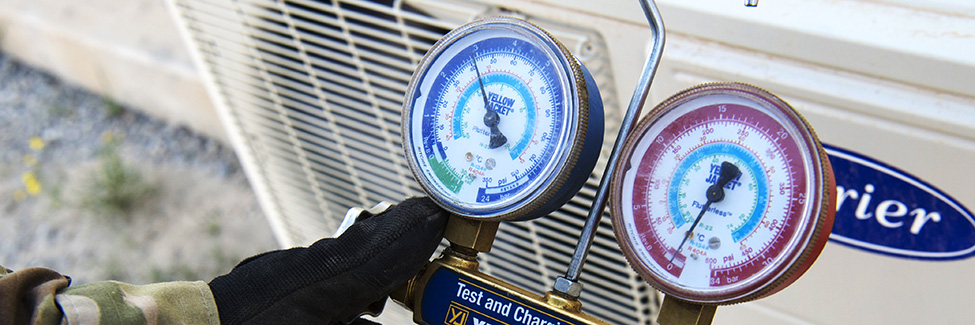
How Your HVAC System Reduces Allergies
Although allergies are most likely to affect you during the spring and fall when trees, grasses, and weeds are growing, you may find that sniffles and sneezes follow you all year long. Pet dander, mold spores and other allergens can live in your home at any time during the year. Most concerning is the fact that the air you breathe can be a potent cause of your runny nose, itchy eyes and sore throat. Thankfully, you can put your HVAC system to work in filtering out common allergens and creating pure home air once again.
The Connection Between Your HVAC System and Allergies
Although you may turn to over-the-counter allergy medications and lifestyle changes to keep your allergies at bay, your HVAC system may also provide you with quite a bit of help in the prevention department. Your HVAC system is good not only for heating and cooling your home but also for keeping your air clean.
HVAC system allergies are particularly problematic if mold spores, pollen, and pet dander are your Achilles’ heel. As your HVAC system blows air throughout your home, it may inadvertently be pushing allergens through the air and moving them from one room to another.
Steps for Reducing Allergies with Your HVAC System
While irregular maintenance of your HVAC system can lead to an increase in your allergy symptoms, properly optimizing the system and taking a few simple steps to keep it clean can significantly decrease your symptoms. It may also help you set aside your over-the-counter allergy medications on those days that you mainly spend indoors. Here are five simple steps to get you started.
Change Your Filter
It is difficult to point to a hard rule for when to change your furnace filters. Frequency will depend on your HVAC system, the furnace filter you use, the current quality of your home’s air and your personal concerns. For example, if you have pets in your home, you will want to change the filter frequently. Unfortunately about a third of homeowners leave their filters dirty for 6 months or longer on a regular basis!
A good rule of thumb is to change your filter every month if you are using a lower-quality filter or every two to three months if you are using a high-efficiency filter. The good news is that changing your filter will decrease your HVAC energy consumption by up to 15 percent according to the U.S. Department of Energy.
Schedule Regular Maintenance
Regular HVAC maintenance can keep your unit humming along perfectly all year long while improving energy efficiency and the comfort of your home in the summer and winter. In addition, according to the Indoor Air Quality Association, regular maintenance ensures that air filtered through your HVAC unit is as clean as possible.
Upgrade to a HEPA Filter
While cheaper filters may be enough to keep your HVAC system working properly, they may not be ideal for letting you feel great while at home. A high-efficiency HEPA filter can filter out even the tiniest particles in your home’s air. HEPA filters can remove at least 99 percent of pollen, dust and other common allergens from the air, according to Good Housekeeping. Additionally, using an air purifier can amplify the air filtering effects.
Destroy Pathogens and Allergens
An even more effective way to kill pathogens within your HVAC system is to invest in a UV lamp. Although this option comes with a higher price tag than other methods do, it can sterilize the HVAC system and coils along with the air passing through them. UV lamps can only kill off biological allergens, such as mold spores and bacteria. They do not get rid of dust, pollen or pet dander.
Keep Your HVAC Unit Clean
Cleaning around your HVAC unit on both the inside and outside of your home can prevent many allergens from getting sucked into the system. You may also want to consider full-house duct cleaning every few years to professionally get rid of dust and other allergens that may be stuck to the inside of your home’s heating and cooling ducts. According to the Environmental Protection Agency, it is important to consider ductwork cleaning if you or other family members are experiencing major or unusual allergy symptoms.
If your allergies have you feeling down, consider a few simple changes to your HVAC system that can help you feel more like yourself once again. Plus, regular HVAC maintenance ensures that you are ready for the next season of allergens and that you will be able to stay comfortable whenever you are indoors.
Still have questions? Ask an HVAC expert directly via chat or phone.
Published on 2020-02-17 by Ben Travis
Last updated on 2020-02-17


